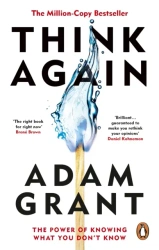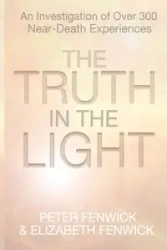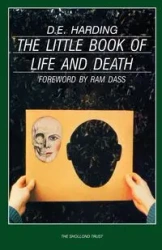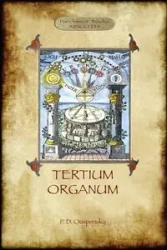Poradniki po angielsku - T
( ilość produktów: 8 )Książki obcojęzyczne - T : Poradniki

The ACT, DBT & CBT Workbook for OCD - Ava Walters
- Autorzy:

Think Again. The Power of Knowing What You Don't Know - Grant Adam
- Autorzy:

The Truth in the Light - Peter Fenwick
- Autorzy:

The Little Book of Life and Death - Douglas Edison Harding
- Autorzy:

The Garbageman's Guide to Life - LeMay Norm
- Autorzy:
Poradniki po angielsku na literę T
Wśród niezwykle bogatego i zróżnicowanego asortymentu w naszej księgarni internetowej Matfel.pl, można znaleźć także książki obcojęzyczne i to nie tylko do nauki danego języka. W tej kategorii mamy coś wyjątkowego dla osób, które poszukują poradników napisanych przez specjalistów i jednocześnie uczą się języka angielskiego i chcą doskonalić swoje umiejętności lingwistyczne.
Przy każdym problemie warto mieć pod ręką dobre źródło wiedzy. Nasza księgarnia internetowa Matfel.pl z dumą prezentuje więc kategorię „Książka poradnik po angielsku na T". To zbiór pozycji różnego rodzaju – od gotowania, przez sprzątanie, po motywacyjne porady życiowe, dostępne w języku angielskim. Tego rodzaju publikacje pozwalają zdobyć cenną wiedzę, ale i rozwijać zdolności językowe oraz poszerzać słownictwo.
Poradniki dla przedsiębiorców po angielsku na T
W tej kategorii można znaleźć wiele zróżnicowanych publikacji. Na przykład takich jak poradniki dla przedsiębiorców po angielsku na T. Tego rodzaju książki to skarbnica wiedzy dla wszystkich biznesmenów, ale i osób, które chcą dopiero założyć firmę i które poszukują literatury pomagającej w rozwoju firm. Od teorii zarządzania, poprzez techniki sprzedaży, po strategie marketingowe – wszelkiego rodzaju poradniki po angielsku na T zweryfikują Twoje obecne metody pracy lub pokażą zupełnie nowe ścieżki rozwoju. Język angielski umożliwi Ci korzystanie z najnowszych badań i trendów na świecie.
Poradniki rolnicze po angielsku na T
Szukasz praktycznych porad na temat uprawy roślin, hodowli zwierząt czy zarządzania gospodarstwem rolnym? W naszej księgarni internetowej Matfel.pl można znaleźć również poradniki rolnicze po angielsku na T. Kolekcja ta zawiera wiele praktycznych wskazówek oraz cenne teoretyczne podstawy, które pomogą Ci w prowadzeniu efektywnych działań rolniczych. Dzięki temu, że poradniki są w języku angielskim, masz dostęp do najnowszych badań i technologii z całego świata.
Poradnik ogrodowy po angielsku na literę T
Nasza księgarnia internetowa Matfel.pl oferuje także poradniki ogrodowe po angielsku na literę T. To pozycje dla wszystkich miłośników roślin i prac ogrodowych, które pomogą zrozumieć tajniki pielęgnacji roślin, zaprojektowania ogrodu, a także zastosować nowoczesne rozwiązania technologiczne w ogrodzie. Wszystko to dostępne w języku angielskim, co otwiera przed Tobą drzwi do międzynarodowego świata ogrodnictwa.
Książka poradnik po angielsku na T
Podsumowując, nasza księgarnia internetowa Matfel.pl oferuje szeroką gamę poradników w języku angielskim na literę "T". Bez względu na to, czy interesujesz się biznesem, rolnictwem, ogrodnictwem czy po prostu potrzebujesz praktycznych wskazówek na co dzień – z pewnością znajdziesz tu coś dla siebie bądź na prezent dla kogoś bliskiego. Wszystkie nasze poradniki po angielsku na literę T są pisane przez najlepszych ekspertów w swoich dziedzinach, co gwarantuje rzetelność i aktualność przekazywanej wiedzy.







